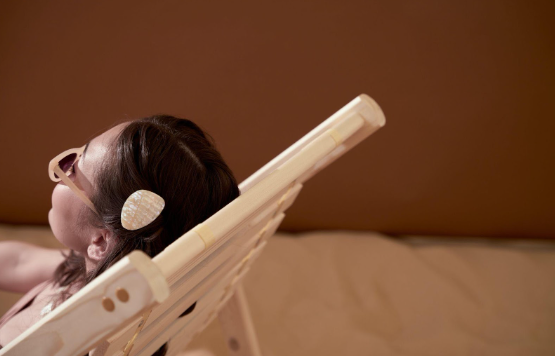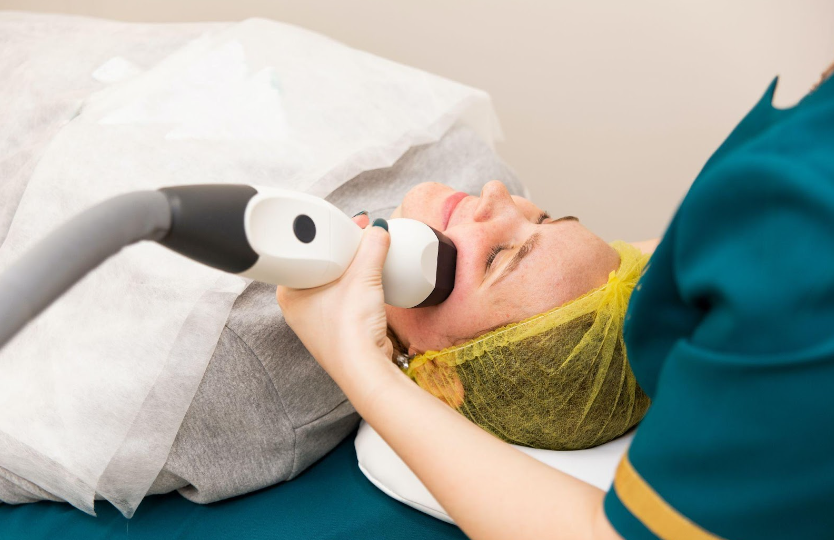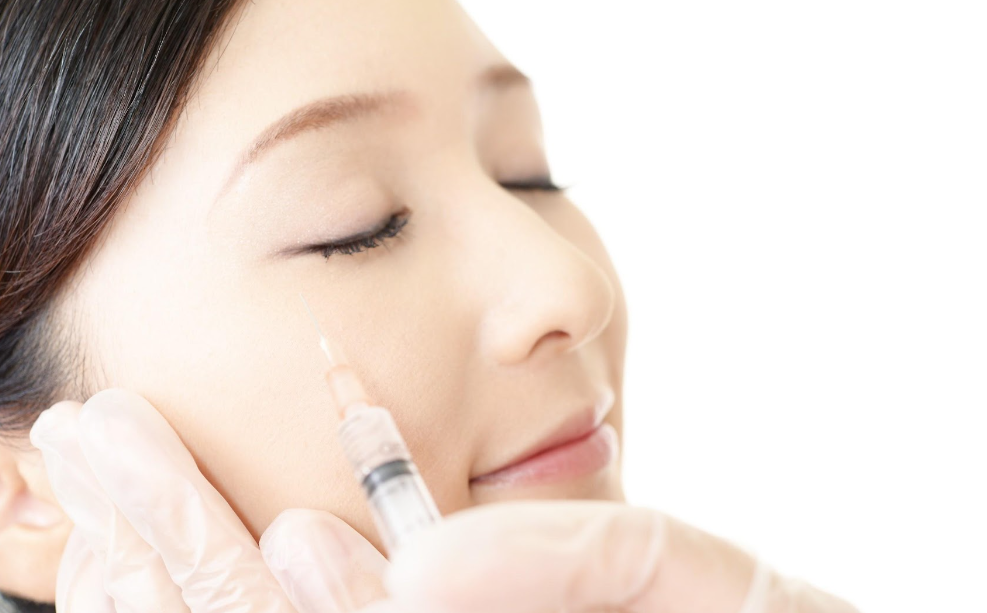10 Things to Know before Receiving Laser Treatments for Scars
10 Things to Know before Receiving Laser Treatments for Scars
What Is a Scar?
A scar is formed on the skin as a result of an injury caused due to an accident, burns, surgery, or an illness. They can be formed in all sizes and shapes and affect people of all age groups and gender. Furthermore, while some scars are large, others may be so small that they are hardly visible to the eye. Some are painful, and others may not cause pain.
The human body builds tissues to repair the damaged skin and close the gaps caused due to the injury. Thus, we can conclude that scars are a part of the healing process. Additionally, not all scars require treatment, as some of them heal over a period of time by fading away from the skin. For the ones that are causing pain, depending on their nature, the doctor will recommend treatment.
Different Types of Scars Require Different Treatment
A dermatologist needs to examine the scar before suggesting the treatment routine as sometimes, skin cancer can develop in a scar. Thus, it is vital to make sure that you have opted for the proper treatment for scars. Laser treatment is one of the most commonly used remedies.
10 Things to Know before Receiving Laser Treatments for Scars
If your doctor has recommended laser treatment for scars, ensure to read up on the following before you undergo the procedure.
1. Laser Treatment May Not Help in Thoroughly Getting Rid of the Scars
Despite the advancements in science and technology, we must come to terms with the fact that laser treatment may not help in 100% scar removal. Through the cosmetic procedure, the growth of new skin layers is encouraged. Thus, this treatment can make the scar less noticeable, but the scar will not completely disappear. This treatment replaces the old scar with a less noticeable one.
However, laser treatment can:
● Stop a raised scar from forming after surgery.
● Bring down scar pain and itch.
● Spike the range of motion if a scar limits movement.
2. Understand the Types of Scars That Can Be Treated with Lasers
Before opting for laser treatment, it is necessary to understand what kinds of scars can be treated with lasers. This treatment is often used to treat superficial scars, while a more intense procedure will be required to treat deeper scars. Laser treatment may be used to treat the following:
Acne Scars
The scars that the acne leaves behind are called acne scars. The types of acne scars are hypertrophic or raised acne scars and atrophic or depressed acne scars. Before beginning to treat acne scars, the doctor might recommend that the acne is brought under control.
Burn Scars
Several factors like accidentally touching something hot, when boiling water comes in contact with the skin, chemicals, electricity, direct sunlight, and radiation could result in a skin burn. The burn may cause the skin cells to die. The skin healing process becomes thick and forms discolored areas known as burn scars. While the temporary ones may fade away, the other burn scars could require treatment. Hypertrophic, contracture, and keloid scars are the different types of burns scars.
3. Know and Understand the Different Types of Laser Treatments
After understanding what kinds of scars can be treated with laser treatment, it is paramount to understand the types of laser treatment. They are:
Ablative Laser Treatment: Using ablatives, the thin outer layer is removed, and it heals the underlying skin. Post that, a healed layer is formed, which is smoother and lighter. Erbium and carbon dioxide are two necessary lasers used in this treatment.
Non-ablative Laser Treatment: It is a non-invasive process requiring less downtime. However, it may prove to be less effective than the ablative laser treatment in severe cases. Lasers that encourage collagen production are used in the non-ablative laser treatment to enhance the skin tone and texture.
A collagen is a form of protein the body produces. It has an essential role in the structure and function of the skin.
4. The Result of the Laser Treatment Often Depends on How Skilled the Dermatologist Is
Without any doubt, laser treatment can be used to heal scars. However, the effectiveness of the treatment depends on many factors, including how efficient and experienced the dermatologist is.
Before undergoing laser treatment for the scar, you must check if the doctor is a board-certified cosmetic surgeon. If the doctor is not qualified, it will show in the procedure’s outcome. Also, laser treatments can have complications if the surgeon isn’t qualified to do them.
5. Discuss in Detail with the Dermatologist About the Laser Treatment You Are About to Undergo
Laser treatment for scars is a minor surgery. However, it is essential to consult a dermatologist before surgery and discuss all aspects of it. During the consultation, you must share with the doctor the list of medications you take, your allergies, and medical history. To help the scar heal and protect the laser from scarring the skin, the dermatologist might recommend some temporary changes in the medications you take.
Additionally, the laser treatment specialist must be aware of your medical conditions. To get efficient results, the person performing the treatment must be aware of your skin type, cause of the scar, medical allergies, allergic reactions, and overall health condition.
6. Use Sunscreen Before Undergoing the Laser Treatment
Laser treatment does not go hand with a sun tan. Thus, the skin must be protected before undergoing the laser procedure. If the dermatologist notices a suntan or a skin burn, the process may not be performed as a laser might react with the suntan, causing skin discoloration or a burn.
Furthermore, after undergoing laser treatment for scars, it is necessary to protect the skin from direct sunlight until it heals. When the skin is exposed to direct sun, further scarring might occur.
7. A Few Lifestyle Changes Might Be Recommended
To achieve the best results from the laser treatment, the dermatologist might recommend specific lifestyle alterations to which the patient is advised to adhere. The changes may include:
● Not smoking for a fortnight before undergoing the laser treatment.
● Avoiding skin exposure to direct sunlight.
● Not consuming anti-inflammatory medicine, Vitamin-E medication, and aspirin.
● Usage of retinoid or glycolic acid-based skincare products might not be encouraged for 2 to 4 weeks before the therapy.
Additionally, patients prone to developing cold sores may be advised to take medications to prevent them from developing.
8. The Treatment Plan Could Include More Than One Laser Treatment and More Than One Sitting
To achieve the best results in treating the scar with laser treatment, the dermatologist may recommend more than just one laser treatment and more than one sitting. The outcome of the ablative lasers is usually visible after a single sitting. However, the non-ablative lasers could require multiple sessions to achieve the desired results. Furthermore, the results of the laser treatment also depend on the skin condition and the skin’s response.
9. Results Could Take Time to Appear
Laser treatment for scars must not be mistaken as a magic wand. Results may not be immediate, and they could take time to appear as the skin will take time to heal. Thus, depending on the laser treatment, it can take a few weeks or months for the results to be visible. In some cases, minor improvements might be noticed in the initial days of the treatment.
10. Medical Insurance May Not Cover the Cost of the Laser Treatment
Medical insurance might not be provided for the laser treatment for the scars, as it is a cosmetic procedure. Furthermore, aesthetic treatments may also not be covered under health insurance. The therapy can help bring down pain and itchiness, and if the scar is limiting movement, laser treatments could work in bringing the action. Yet they are considered cosmetic procedures, which health insurance generally does not cover.
How to Diagnose a Scar?
By closely watching the skin that has healed from an injury, one can conclude if a scar is developed or not. To the normal eyes, scars may appear either darker, lighter, or pinker than the skin surrounding them. However, if you notice a scar developing, you may seek medical help. The doctor will do a physical examination of the patient to take a closer look at the scar that is causing trouble. Depending on the patient’s medical condition, and the severity of the scar, among other factors, the medical professional will recommend the treatment for the scar. One of them could be laser treatment for the scars.
If you want medical advice on laser treatment for scars, you can get in touch with us at Pine Belt Dermatology, MS. At Pine Belt Dermatology & Skin Cancer Center, we offer general & cosmetic dermatology services. We have a presence in Petal, Hattiesburg, Ellisville, and Biloxi. Click here for our address of the location near you. All four locations are open from Monday to Friday between 8:00 am and 4:30 pm. Click here to request an appointment.







Phone:
Address:
Hours of Operation:
Mon-Fri: 8:00am to 4:30pm
Phone:
Address:
Hours of Operation:
Mon-Fri: 8:00am to 4:30pm




